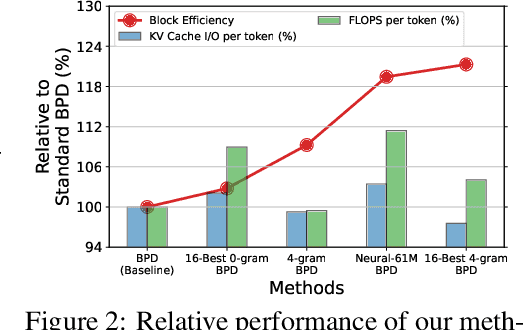Towards Fast Inference: Exploring and Improving Blockwise Parallel Drafts
Paper and Code
Apr 14, 2024



Despite the remarkable strides made by autoregressive language models, their potential is often hampered by the slow inference speeds inherent in sequential token generation. Blockwise parallel decoding (BPD) was proposed by Stern et al. (2018) as a way to improve inference speed of language models. In this paper, we make two contributions to understanding and improving BPD drafts. We first offer an analysis of the token distributions produced by the BPD prediction heads. Secondly, we use this analysis to inform algorithms to improve BPD inference speed by refining the BPD drafts using small n-gram or neural language models. We empirically show that these refined BPD drafts yield a higher average verified prefix length across tasks.
 Add to Chrome
Add to Chrome Add to Firefox
Add to Firefox Add to Edge
Add to Edge